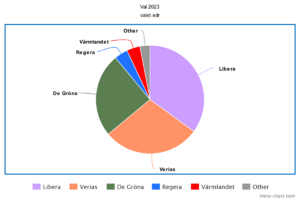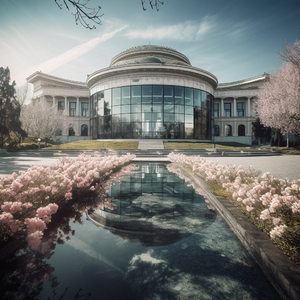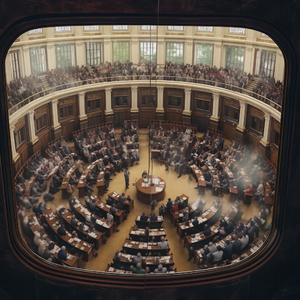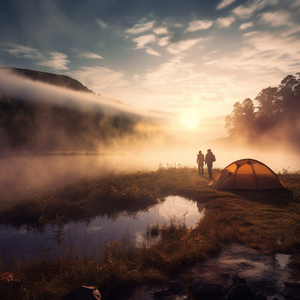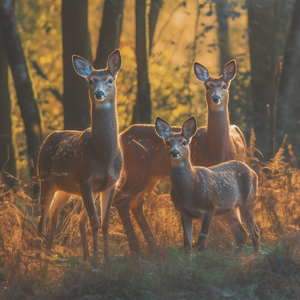Eder: Difference between revisions
| (28 intermediate revisions by the same user not shown) | |||
| Line 1: | Line 1: | ||
The nation of Eder is a sovereign country, situated in the central mountainous region of the [[The Kodiak Republic|The Kodiaks]]. | The nation of Eder is a sovereign country, situated in the central mountainous region of the [[The Kodiak Republic|The Kodiaks]]. | ||
== Population == | |||
The Ederian people are generally modern but remain highly traditional, voting for socio-liberal and neo-conservative political parties and policies. This is reflected in the mix of modern and old in both social practises and traditions as well as architecture. Heavily investing in technology and education, the Ederians have contributed to many technological leaps, especially in the fields of energy technology, nuclear fission and fusion, social policy for the poor, and information security, and Ederians have been awarded several [[Noble Prize|Noble Prizes]]. | |||
One tradition reflected in many of the country's policies is kindness to strangers, which is often cited as a top reason for tourists to visit Eder. In 2023, Eder was ranked in the top 10% nicest people in the world. | |||
== Politics == | == Politics == | ||
Eder is governed as a classic republic with direct representation in its parliament, which is subdivided into ministries and other work groups. Elections to both parliament and ministries are triannual, and some votes are also decided by state-wide popular votes for all citizens per long-standing Ederian tradition. | Eder is governed as a classic republic with direct representation in its parliament, which is subdivided into ministries and other work groups. Elections to both parliament and ministries are triannual, and some votes are also decided by state-wide popular votes for all citizens per long-standing Ederian tradition. | ||
Eder spends considerable efforts on anti-corruption programs, and was ranked in the top 5% of least corrupt governments shortly after the election in 2023. | |||
=== Prime minister === | === Prime minister === | ||
| Line 29: | Line 37: | ||
! Election year !! Electee!! Party | ! Election year !! Electee!! Party | ||
|- | |- | ||
| 2023 || Bruce Leader || Libera | | 2023 || Bruce Leader || [[Libera]] | ||
|- | |||
| 2020 || Vera Ask || [[Veritas]] | |||
|- | |||
| 2017 || Vera Ask || [[Veritas]] | |||
|- | |||
| 2014 || Nalle Redlind || [[Veritas]] | |||
|- | |||
| 2011 || Patrik Rosenquiesth || [[Moderat Höger]] | |||
|- | |||
| 2008 || Nils Bodenström || [[Veritas]] | |||
|- | |- | ||
| | | 2005 || Anders Johansson || [[Moderat Höger]] | ||
|- | |- | ||
| | | 2002 || Py Teklund || [[Libera]] | ||
|- | |- | ||
| | | 1999 || Simon Nordenfelt || [[Värmlandet]] | ||
|- | |- | ||
| | | 1994 || Robin Nordenfelt || [[Värmlandet]] | ||
|- | |- | ||
| | | 1989 || Nils Asplund || [[Värmlandet]] | ||
|} | |} | ||
| Line 47: | Line 65: | ||
[[File:Eder-riksting.png|thumb|The inside of the Ederian ''Riksting''. Note the round speaker's table, in order to give equal respect to attendees at all sides of the room. Photo courtesy: Vlad Vladison]] | [[File:Eder-riksting.png|thumb|The inside of the Ederian ''Riksting''. Note the round speaker's table, in order to give equal respect to attendees at all sides of the room. Photo courtesy: Vlad Vladison]] | ||
The 411 seats of the Ederian Parliament are distributed to political parties or individuals to exactly match their proportions of votes, i.e., direct representation. Therefore, coalitions and political alliances are often necessary to bring proposals into effect. | The 411 seats of the Ederian Parliament are distributed to political parties or individuals to exactly match their proportions of votes, i.e., [[direct representation]]. Therefore, coalitions and political alliances are often necessary to bring proposals into effect. | ||
=== Stormännen (Electoral Board) === | === Stormännen (Electoral Board) === | ||
The Stormännen, the Ederian Electoral Board, an instance that previously pre-elected members of political parties into governmental election standards, was disbanded in 2023 in favour of direct representation from the number of votes. | The [[Stormännen]], the Ederian Electoral Board, an instance that previously pre-elected members of political parties into governmental election standards, was disbanded in 2023 in favour of direct representation from the number of votes. | ||
== Geography == | |||
== Nature == | Eder is located in [[The Kodiak Nation]], also known as the Kodiaks, in the mountainous region in the north hosting the [[Angel's Maw]] mountain range. While the average altitude is just above a high 1,500 meters, this mountainous region sports impressive variations in altitude and biomes effectively forming a large slope ending in the [[Norrhavet]] ocean. Multiple rivers run from the mountains to the ocean, running especially wide as the snow melts in spring. The [[Friskfloden]] river is the largest, meandering through the central parts of the country, ending in Lake [[Tranan]]. The river and it's lakes forms the nation's main source of freshwater, and produces significant electricity via the [[Storångan dam]]. | ||
Bound by mountains in the north and an ocean in the south, the west of Eder is filled with dense forests and wilderness. Nicknamed ''Bredfriden'' (the Big Tranquility in Ederian), here you find traditional villages, often closely connected with wood, paper, glue, or mining industries. To the east lies the most densely-populated area of Eder, along with it's capital city of [[Lärka]], boasting large financial districts, buzzling scientific centres with multiple universities, and prominent life science and technology sectors. | |||
=== Nature === | |||
[[File:Eder-hikers.png|thumb|Hiking is freely accessible and a very popular activity in Eder. Photo: Eder Tourism Office]] | |||
The temperate climate and often high altitudes have created a beautiful Ederian landscape, with lush pine, birch, and oak forests, flower-rich meadows, and the odd waterfall, forming a pictureseque backdrop and a popular tourist attraction. | |||
The Ederian nature is strongly protected by the country's laws, and a high state budget backs the preservation of nature both in nature reserves but also protects sensitive flora and fauna on private property. However, Ederian citizens and tourists alike have limited but free access to nature as part of the unique ''Allederrätten'', a statewide law yielding access to nature's gifts to visitors. | |||
=== Fauna === | |||
==== Feather-bellied Roe Deer ==== | |||
After major scientific success in cloning experiments carried out by multiple groups at the Ederian Research Centre of Molecular Biology, the ancient animal of the Feather-bellied Roe Deer was successfully resurrected. After a healthy population of 352 individuals was bred in captivity, the animal was reintroduced into the natural environment, under close continued surveillance for ecological effects. | |||
[[File:Eder-deer.png|thumb|Feathered-bellied Roe Deer taking a peek from the forest line. Photo: Joe Silva]] | |||
Since 2023, the Feather-bellied Roe Deer is the national animal of Eder, and is also the inspiration behind the mascot of the national football team, Ellie the Feather-Belly. | |||
===== Genetic instability ===== | |||
Two-headed Feather-bellied Roe Deer have been observed in nature. Individuals carrying such mutations in other animals rarely survive infancy in nature, but techniques used in enforcing the roe deer DNA after their genetic resurrection inadvertently enabled them to sustain also further alterations in their DNA better. The two-headed variants been connected to a recent finding of a cache of ancient statues made from radioactive uranium-infused granite, the radiation of which is believed to have produced the genetic alterations. Further variants are expected. | |||
==== Ederian trout ==== | |||
The well-preserved nature has also produced plenty of opportunities for many species of fish to thrive in the nation's many waters. In 2022, Eder was ranked in the top 0.3% of the world's producers of trout, which is considered to be of 'gold' culinary standard. | |||
== History == | == History == | ||
The nation of Eder, previously Ederia or Ederae, recently celebrated the 1500-year anniversary of their sovereignty, achieved while signing the peace treaty of [[The 500-year War]]. This event is considered the official birth of the nation of Eder. | |||
Prior to this event, several warring nations were fighting for the valley where the ancient Ederian settlement of Prika was situated (now [[Blackwood National Park]]). Eder and it's neighbouring states were long vassals of what is known as the great House of Jonas, but at the end of year 520 they all rebelled and joined together with the warring tribes, leading to the eventual downfall of House Jonas and the gained sovereignty of its previous vassals, including Eder, according to some sources on May 15th year 529. This event put a final stop to centuries of conflict in the region, and is celebrated as the Ederian National Day, nicknamed [[Brakon's Day]] after the name of the rebel king at the time of sovereignty. | |||
=== Modern history === | |||
The monarchy was reformed into a republic in 1899, with the power switching from [[King Rudolf II Gustaf]] to his advisory board of fifteen men. This was done after the first popular vote, organised by the King. The monarchy still retained many duties, many of which are still cared for by Ederian royalty today. The reason for the vote is not clear, but many sources claim that the vote was an effect of a longer period of rising unrest due to poor management of state finances. The long peacetime is also accredited for allowing political reform. | |||
The council of the fifteen, now named ''Stormännen'', was however not consisting of elected positions but positions were instead inherited until 1919. The right to vote was retained for only men until 1938, when all citizens where allowed to vote and also women were first allowed to hold political positions. The first female politician was [[Gertrud Persdotter]], elected in the following year. | |||
The current system of numerous committees is based on a slew of reformations in the 1960's, to divide power more equally and allow for more informed decision-making. This event is referred to as the Great Study, or ''Storstudien'', and formed the large ''Rikstinget'' as a control instance of the Stormännen. Stormännen were later fully abolished in 2023, with Rikstinget now realising all power, lead by the prime minister and his cabinet of ministers. | |||
Popular voting is still a practised tradition, although many decisions are now handled directly in Rikstinget. | |||
Latest revision as of 06:31, 30 June 2023
The nation of Eder is a sovereign country, situated in the central mountainous region of the The Kodiaks.
Population
The Ederian people are generally modern but remain highly traditional, voting for socio-liberal and neo-conservative political parties and policies. This is reflected in the mix of modern and old in both social practises and traditions as well as architecture. Heavily investing in technology and education, the Ederians have contributed to many technological leaps, especially in the fields of energy technology, nuclear fission and fusion, social policy for the poor, and information security, and Ederians have been awarded several Noble Prizes.
One tradition reflected in many of the country's policies is kindness to strangers, which is often cited as a top reason for tourists to visit Eder. In 2023, Eder was ranked in the top 10% nicest people in the world.
Politics
Eder is governed as a classic republic with direct representation in its parliament, which is subdivided into ministries and other work groups. Elections to both parliament and ministries are triannual, and some votes are also decided by state-wide popular votes for all citizens per long-standing Ederian tradition.
Eder spends considerable efforts on anti-corruption programs, and was ranked in the top 5% of least corrupt governments shortly after the election in 2023.
Prime minister
The current prime minister is Bruce Leader, of the liberal party Libera, who was sworn in on May 4th 2023 after winning a landslide victory in the elections after ever-popular opponent Vera Ask could not run for a third term. Promising change and modernisation to the country, Leader accrued 89% of the popular votes, and could be sworn in already after two weeks of the standard double-checking of the votes.
Leader's party Libera thus successfully formed a coalition with Grön Front, the green party, and Veritas, the party advocating scientific progress, which is reflected in the Board of Ministers. Leader's young age and charismatic personality are also reflected in his cabinet picks, e.g., choosing the similarly young and popular Dr. Marina Nicklasson as Minister of Finance and steadfast supporter Peter Blodtvage as Minister of Defence.
The current Ederian cabinet is:
- Minister of Interior Affairs: Dr. Pia Ekholt, Libera
- Minister of External Affairs: Örjan Hård, Grön Front
- Minister of Finance: Dr. Marina Nicklasson, Libera
- Minister of Education: Dr. Alexander Bok, Veritas
- Minister of Progress: Dr. Pål Eppendorf, Grön Front
- Minister of Defence: Peter Blodtvage, Libera
- Minister of Transportation: Ester Åklångt, Veritas
- Minister of Land: Dr. Vandra Skogh, Grön Front
History
| Election year | Electee | Party |
|---|---|---|
| 2023 | Bruce Leader | Libera |
| 2020 | Vera Ask | Veritas |
| 2017 | Vera Ask | Veritas |
| 2014 | Nalle Redlind | Veritas |
| 2011 | Patrik Rosenquiesth | Moderat Höger |
| 2008 | Nils Bodenström | Veritas |
| 2005 | Anders Johansson | Moderat Höger |
| 2002 | Py Teklund | Libera |
| 1999 | Simon Nordenfelt | Värmlandet |
| 1994 | Robin Nordenfelt | Värmlandet |
| 1989 | Nils Asplund | Värmlandet |
Rikstinget (parliament)
The Rikstinget, the Ederian Parliament, is the major governmental body tasked with raising and discussing proposals for amendments to law. Such proposals are written by seated members of Rikstinget, called Riksmän, usually through their roles as chairmen of the many sub-committees of Rikstinget. The committees are formed as task groups to assess a certain issue before presenting it prior to voting in Rikstinget (referred to as a confession), but are also regularly formed to put a voted resolution into effect.
The 411 seats of the Ederian Parliament are distributed to political parties or individuals to exactly match their proportions of votes, i.e., direct representation. Therefore, coalitions and political alliances are often necessary to bring proposals into effect.
Stormännen (Electoral Board)
The Stormännen, the Ederian Electoral Board, an instance that previously pre-elected members of political parties into governmental election standards, was disbanded in 2023 in favour of direct representation from the number of votes.
Geography
Eder is located in The Kodiak Nation, also known as the Kodiaks, in the mountainous region in the north hosting the Angel's Maw mountain range. While the average altitude is just above a high 1,500 meters, this mountainous region sports impressive variations in altitude and biomes effectively forming a large slope ending in the Norrhavet ocean. Multiple rivers run from the mountains to the ocean, running especially wide as the snow melts in spring. The Friskfloden river is the largest, meandering through the central parts of the country, ending in Lake Tranan. The river and it's lakes forms the nation's main source of freshwater, and produces significant electricity via the Storångan dam.
Bound by mountains in the north and an ocean in the south, the west of Eder is filled with dense forests and wilderness. Nicknamed Bredfriden (the Big Tranquility in Ederian), here you find traditional villages, often closely connected with wood, paper, glue, or mining industries. To the east lies the most densely-populated area of Eder, along with it's capital city of Lärka, boasting large financial districts, buzzling scientific centres with multiple universities, and prominent life science and technology sectors.
Nature
The temperate climate and often high altitudes have created a beautiful Ederian landscape, with lush pine, birch, and oak forests, flower-rich meadows, and the odd waterfall, forming a pictureseque backdrop and a popular tourist attraction.
The Ederian nature is strongly protected by the country's laws, and a high state budget backs the preservation of nature both in nature reserves but also protects sensitive flora and fauna on private property. However, Ederian citizens and tourists alike have limited but free access to nature as part of the unique Allederrätten, a statewide law yielding access to nature's gifts to visitors.
Fauna
Feather-bellied Roe Deer
After major scientific success in cloning experiments carried out by multiple groups at the Ederian Research Centre of Molecular Biology, the ancient animal of the Feather-bellied Roe Deer was successfully resurrected. After a healthy population of 352 individuals was bred in captivity, the animal was reintroduced into the natural environment, under close continued surveillance for ecological effects.
Since 2023, the Feather-bellied Roe Deer is the national animal of Eder, and is also the inspiration behind the mascot of the national football team, Ellie the Feather-Belly.
Genetic instability
Two-headed Feather-bellied Roe Deer have been observed in nature. Individuals carrying such mutations in other animals rarely survive infancy in nature, but techniques used in enforcing the roe deer DNA after their genetic resurrection inadvertently enabled them to sustain also further alterations in their DNA better. The two-headed variants been connected to a recent finding of a cache of ancient statues made from radioactive uranium-infused granite, the radiation of which is believed to have produced the genetic alterations. Further variants are expected.
Ederian trout
The well-preserved nature has also produced plenty of opportunities for many species of fish to thrive in the nation's many waters. In 2022, Eder was ranked in the top 0.3% of the world's producers of trout, which is considered to be of 'gold' culinary standard.
History
The nation of Eder, previously Ederia or Ederae, recently celebrated the 1500-year anniversary of their sovereignty, achieved while signing the peace treaty of The 500-year War. This event is considered the official birth of the nation of Eder.
Prior to this event, several warring nations were fighting for the valley where the ancient Ederian settlement of Prika was situated (now Blackwood National Park). Eder and it's neighbouring states were long vassals of what is known as the great House of Jonas, but at the end of year 520 they all rebelled and joined together with the warring tribes, leading to the eventual downfall of House Jonas and the gained sovereignty of its previous vassals, including Eder, according to some sources on May 15th year 529. This event put a final stop to centuries of conflict in the region, and is celebrated as the Ederian National Day, nicknamed Brakon's Day after the name of the rebel king at the time of sovereignty.
Modern history
The monarchy was reformed into a republic in 1899, with the power switching from King Rudolf II Gustaf to his advisory board of fifteen men. This was done after the first popular vote, organised by the King. The monarchy still retained many duties, many of which are still cared for by Ederian royalty today. The reason for the vote is not clear, but many sources claim that the vote was an effect of a longer period of rising unrest due to poor management of state finances. The long peacetime is also accredited for allowing political reform.
The council of the fifteen, now named Stormännen, was however not consisting of elected positions but positions were instead inherited until 1919. The right to vote was retained for only men until 1938, when all citizens where allowed to vote and also women were first allowed to hold political positions. The first female politician was Gertrud Persdotter, elected in the following year.
The current system of numerous committees is based on a slew of reformations in the 1960's, to divide power more equally and allow for more informed decision-making. This event is referred to as the Great Study, or Storstudien, and formed the large Rikstinget as a control instance of the Stormännen. Stormännen were later fully abolished in 2023, with Rikstinget now realising all power, lead by the prime minister and his cabinet of ministers.
Popular voting is still a practised tradition, although many decisions are now handled directly in Rikstinget.

